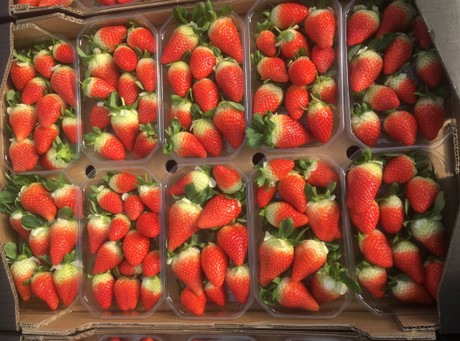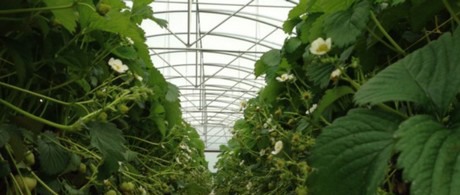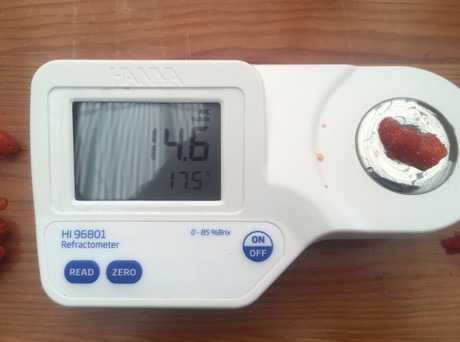After growing Elsanta for 5 years, the strawberry growers of Portuguese company Sabores Púrpura have switched to Fortuna. The company has harvested the first fruits of this winter season. "For the consumers it's just strawberries, but for producers each variety is so different. It's as if we had to relearn to work the strawberry", reveals Miguel Silva, CEO of the company.

The year might only be a few days old, but the 2019 season of Portuguese strawberries has already started. The Portuguese company Sabores Púrpura grows the fruit in their 1.5 hectare greenhouse and focuses completely on winter production, exporting their product mainly to Northern Europe. Miguel expects a good harvest.
After the inclement weather that Sabores Púrpura suffered last year, demolishing part of their farm, the company is back on track. "The storm has shaken not only the greenhouses but also the entire structure of the company, this campaign has started with a new variety and that brings some uncertainties about the future of strawberries, Miguel shares openly. "When we work on a new variety, we have to relearn everything again. It is as if we were working another fruit, completely different. For the consumers it's just strawberries, but for producers each variety is so different, it's as if we had to relearn to work the strawberry."
Sabores Púrpura grows strawberries in the Algarve, Portugal. With the use of Dutch technologies and a high tech greenhouse, they distinguish themselves from the open field or low tech production in the region and focus on growing an export product with a high taste level. Therefore they grow hydroponically, on table tops and in coco peat growing bags.

This season's beginning was complicated for the company. Leaving the variety Elsanta after 5 years and switching to the Fortuna variety, a popular variety mainly in Spain, took some effort. But, as the team shares, the effort has paid of. "The work of monitoring and corporate re-education carried out by our agronomist consultant Jorge Duarte (JDHortitooling) came to reveal a hidden surprise in the variety", quality manager Sofia Ferreira explains. "In fact, our expectations regarding this variety were not very high, regarding what was available on the market. We imagined that we would not reach the same degree brix we were used to and that quality would be lower. This was something we did not like. However, the first strawberries have already started to come out and we are very pleased with the work we have managed to develop together with Jorge. We are getting strawberries of excellent quality and with a brix of 14, so we are very satisfied with the performance of this culture", she says, highlighting the performance of the responsible agronomist. "I had to row back on my expectations - especially since the feeling in the mouth of this strawberry is surprisingly good. We are known for the quality and characteristics of our produce and we're happy to continue the works."

"This was a year of tough decisions and hard work. Getting out of our comfort zone is a risky decision, but it also taught us that we were able to quickly adapt to a new reality", Miguel adds. "Agricultural companies have very own characteristics, at the level of management they cannot be considered like any other company. There are many factors to take into consideration, that do not extinguish in an understanding of the supply and demand of market. More and more people have been discussing the importance of people working in businesses. In agriculture this is very obvious and very preponderant, which dictates the success or failure of an entire season”, adds Miguel Silva.
